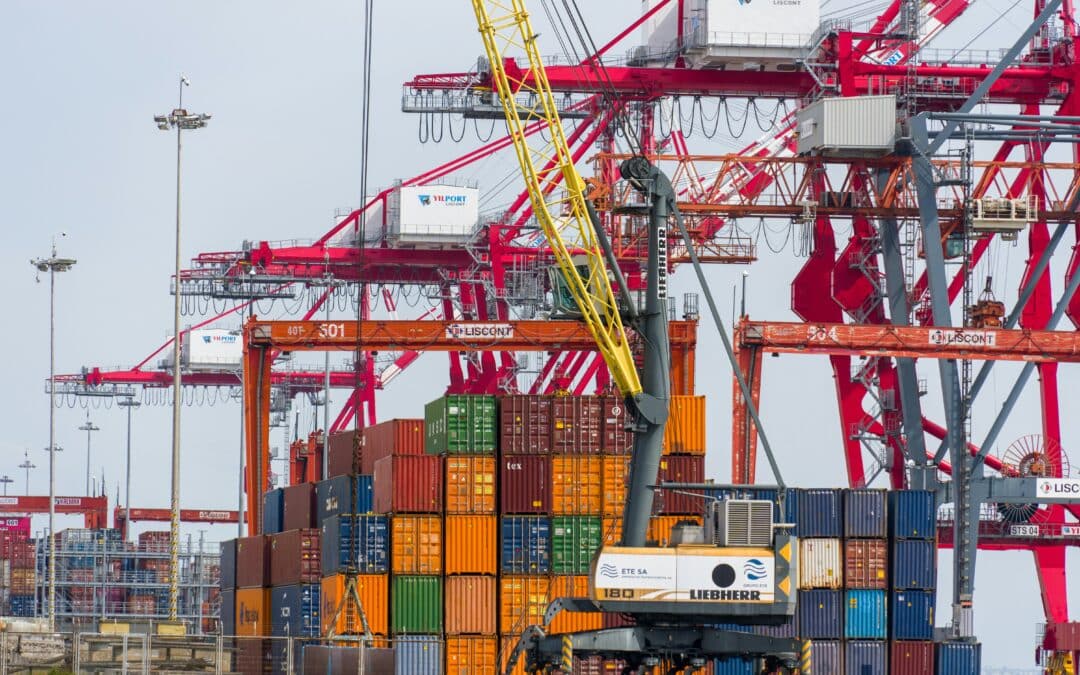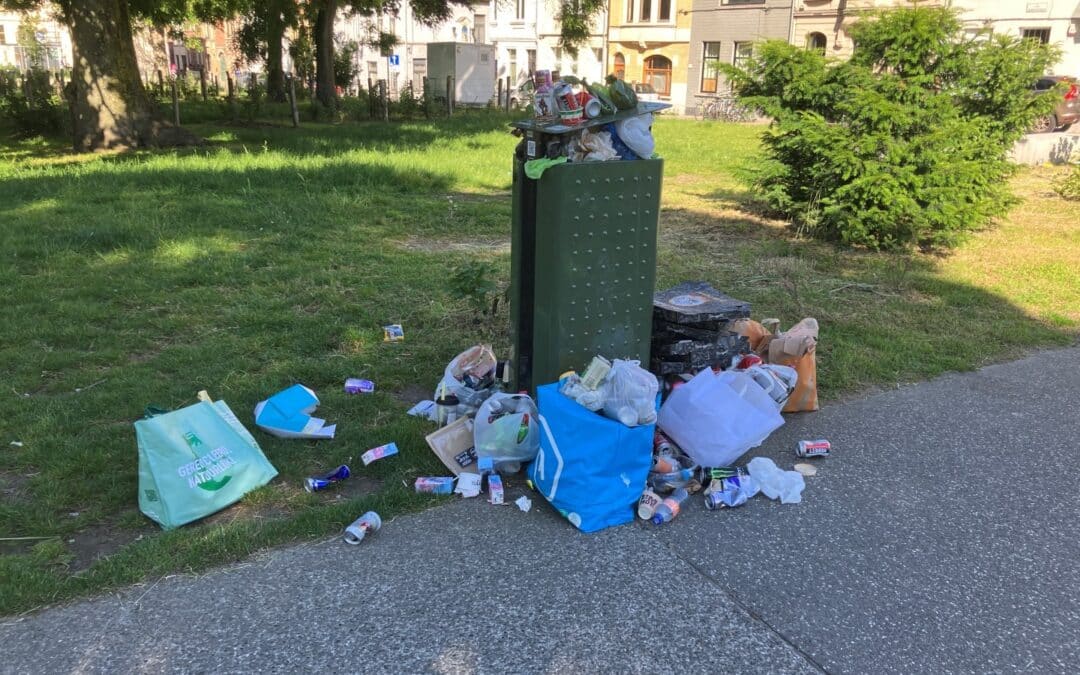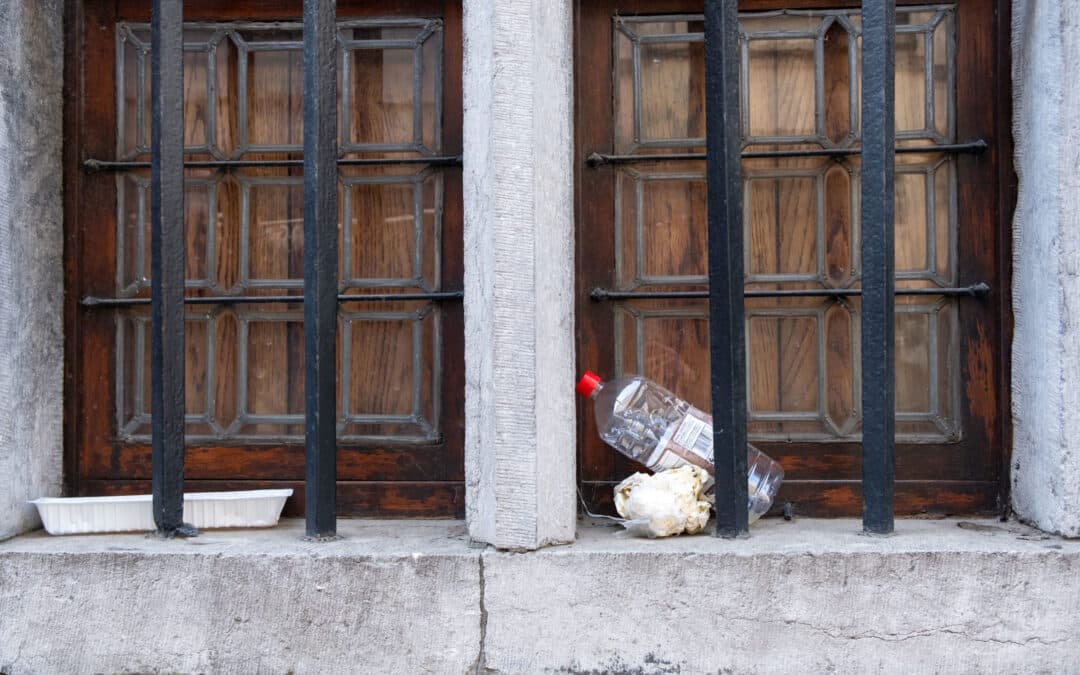Written by Chloé Schwizgebel, Fair Resource Foundation, and Nina Maat, Bond Beter Leefmilieu
2023 as an opportunity to test a ‘digital’ system
It is too early to declare victory. Minister Demir’s decision to go for a deposit system was not a choice for the existing, known system, where consumers return their empty containers to the shop and get their money back immediately. That although this system is already proving successful in other European countries. Moreover, a survey conducted by Testaankoop (Belgian consumer organization) in 2021 revealed that over 88% of the population is in favour of returning packaging to collection points such as supermarkets.
The decision only states that a deposit will be introduced on all cans and plastic bottles in 2025 and that the industry will be given time this year to try out a new system. This new system requires consumers to scan a QR code on the packaging and the blue bag before disposing of their waste.
Digitisation does not equal innovation
Let there be no doubt: we are in favor of innovation. But digitising something is not the same as innovating. Innovation only occurs when you offer a new solution to a problem. And the preliminary study commissioned by Fost Plus already showed many uncertainties around privacy, fraud and accessibility in the digital deposit system. Not every citizen has access to digital applications.
Secondly, there is the question of who will bear the additional costs and burdens. With digital deposits, for example, there is a greater chance that companies will pass on the additional costs of printing QR codes on cans to consumers. It is also uncertain whether all producers will be able to implement the new system in time, especially given the many questions surrounding its feasibility. Finally, the key question: will this system actually reduce litter? Citizens can still dump their waste after scanning. Furthermore, it is unclear whether this system will contribute to an effective circular economy for packaging by improving separate collection or setting up a system for reusable packaging.
These weaknesses convinced Wales to ultimately opt for a traditional deposit system after conducting a similar test.
Key requirements for a good system
Whereas the existing deposit system has already earned its stripes, the scanning system has another six months to prove itself. Its success or failure will depend on a number of key conditions. Firstly, a deposit system can only be considered successful if it reduces litter and thus lowers the costs for citizens and the environment. Secondly, it must be accessible to everyone, regardless of age, health, mobility or financial strength, with or without internet, smartphone or bank account number. Thirdly, it must not allow fraud or privacy violations.
The Flemish digital test phase seems more like a last-ditch attempt by the packaging sector to shirk its responsibility. A lot of time has been wasted that could have been better invested in reducing the mountain of waste. Real innovation would, for example, focus on eco-design and circularity, whereby reuse is considered at the start of the production chain, something that Europe has indicated it wants to fully commit to.
Walloon Minister for the Environment Céline Tellier is therefore taking a slightly different approach.. It also wants to roll out a deposit system in 2025 and is therefore first conducting its own preparatory study into the best option. To this end, it is consulting with all regions and neighbouring countries to ensure uniformity and convenience for citizens.
That is why we will continue to insist on transparency throughout the process, clear planning with firm deadlines and the involvement of various target groups. In this way, we will safeguard the ultimate goal: less waste in our environment thanks to an effective and accessible deposit system in 2025.
Related Tags

Where and why: financing of the plastic waste trade
In our previous article, we provided a wide overview of the size and importance of international plastic waste (PW) trade. Subsequently, in this piece, we will shed light on why plastic waste trade is such a profitable sector and which are the incentives to perform this business outside of legality.

Court of Rotterdam sentences several people for illicit plastic waste trade from the Netherlands
On Friday 8th of August 2025 Dutch news outlets echoed about a sentencing on plastic waste smuggling from the Netherlands to various non-EU countries. NL Times, AD, local news outlets, and the Dutch Inspection (ILT) reported the criminal sentencing of 4 people and 3 companies for illicit plastic waste trade, with one of them being also charged with money laundering.

Belgian packaging industry already saved 465 million € in litter fees – at our expense
The Belgian packaging industry is outraged by the introduction of a new €102 million litter levy. But it conveniently forgets that its effective lobbying has already saved it no less than €465 million. This sum has been gained at the expense of local authorities and society. This levy is due to be approved today by the Walloon Council of Ministers. Fair Resource Foundation delves into the figures.

